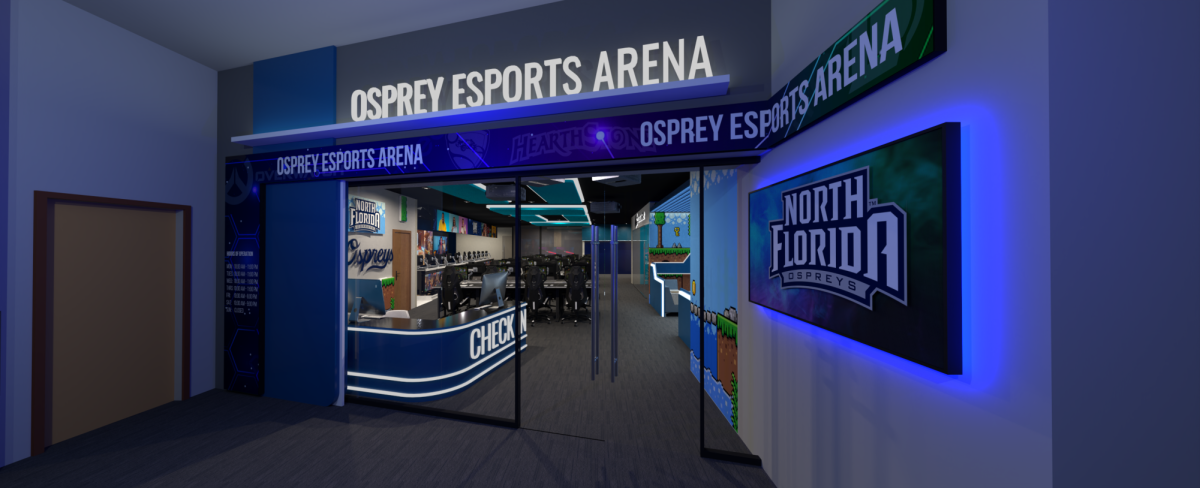By: Ryan Thompson, Features Editor
In an element-torn corner in a forgotten part of UNF sleeps the Business Day section of the Feb. 6 New York Times, dirtied from a campus cursed with continuous construction and the inherent smears of newsprint.
It enjoys the gentle buzz of a nearby vending machine and shadowbathes as a cat bristles past it in search for a meal.
On B7 of the Business Day section, you’ll find an opinion piece from Nick Bilton. In the top left corner of the national broadsheet, you’ll find a column called “Facebook users ask, ‘Where’s our cut?’” that offers insight on Big Blue — Facebook — and pleads for a slice of the company’s revenue in exchange for quotidian use of its service.
At first, the argument seems as attractive as the cast of “The Social Network” — wait, no it doesn’t. At first, upon the column’s conclusion, it renders a reaction appropriate for college students that ends as quickly as it begins: “What?!”
Bilton estimates that the Book of Faces owes him $50 in royalties because of the time he’s spent using the site.
The columnist pens, “Facebook laid the foundation of the house and put in the plumbing, but we put up the walls, picked out the furniture, painted and hung photos, and invited everyone over for dinner parties.”
But this analogy fails.
Creator and CEO Mark Zuckerberg provided the land. He invited Harvard students to lay the foundation and design the plumbing system. He then allowed more university students to breathe life into the walls and set out the embarrassing photo albums. Then he let underage high-schoolers in.
They poked around for a bit, sprinkled bumper stickers and graffiti around the edifice. They expanded outside and built poolhouses and added more floors.
And then, because he wanted everyone who waited in line for the information overdose to have the chance to feed an addiction they had yet to taste, Zuck gave the world hammers, bedding and infinite red Solo cups to continue construction on the Facebook home their friends and family created.
Yes, users create Facebook’s content. But this binary of user and content looks at itself in the fitting room mirror and realizes it needs another size.
As I mentioned at the end of my last column on Facebook, a wise friend of mine quoted on his Facebook wall: “Remember: You’re the product, not the consumer.”
Pretty harrowing, right Bilton and anyone out there who wants their cut of the social network’s public cake?
The concept puts Zuck’s digital child in an interesting position. Facebook sells the information you give it to advertisers, but privacy advocates have squeezed the condiment bottle that is this ancient argument for the site’s evilness to the point where it produces that escaping-gas squirt.
Instead of requesting money, users should make their experience on the website as maximally private as they can.
When more savvy users begin to use the available public information about Facebook’s bartering of personal information to make its lifeblood, and adjust how much they share, then they will begin to shake any sort of sense of entitlement to the site’s profit.
But I sense that sensible users may not even stand among those who consider themselves technology experts.
Bilton’s Facebook page bills him as a New York Times columnist since 2004, a year in which Internet Explorer 6 looked sleek and forward-thinking on my family’s Windows XP desktop, and a boy in a Harvard dorm room was drunk, angry, stupid and blogging.
To suggest that Bilton is out of touch with those who use Facebook recreationally may be an insult to his profession as a New York Times technology columnist. But to someone who uses Facebook daily — hourly, even — his argument seems confused, flawed and absurd.
On the NYT.com post in which Bilton shared his piece, one of his Facebook subscribers comments, “It’s a provocative argument. But a little like asking a drug company for a cut of profits because your depression drives Prozac sales. You could say FB is different because we actually manufacture the product, in a sense. But the way I see it, Zuck has simply made our narcissism his asset.”
This assertion amplifies my point: A platform that fosters narcissism and veggin’ out should not owe anything to those who go there to bask in self-love and obsession.
As products of Facebook, we need our fix of self-love and obsession. We need to veg out in our own and others’ narcissism.
Instead of fearing that Big Blue uses your information to make a profit, barring the amount of information you share with it should dry your whetted appetite for a piece of that Facebook logo-shaped cookie-cake.
Facebook is not a necessary evil — whatever that means. It’s not an entity independent of those who think they use it and those who make money. You could stop using Zuckerberg’s service whenever you wanted to. But you don’t want to stop because you shouldn’t have to.
We recognize our need for whatever sort of satisfaction Facebook gives us — whether it be socially or economically advancing. And those willing to buy shares in the online giant recognize a nearing day in which they’ll help Zuck’s company raise its hopeful $5 billion.
Meanwhile, a dog continues to obediently hold still for an Instagram photo, save for his tail. A college kid continues to scroll through tweets on her way to class. A movie buff continues to watch “The Social Network” on Netflix in a stupor of amazement.
And the column on the top left corner of page B7 on that dirtied Feb. 6 New York Times Business Day section continues to sleep, aware that others may one day read its digital dual after scrolling through a Facebook timeline.
Email Ryan Thompson at features@unfspinnaker.com.
Check out this digital short based on the story you’ve just read. It was created by students in the Applied Journalism class at UNF.







